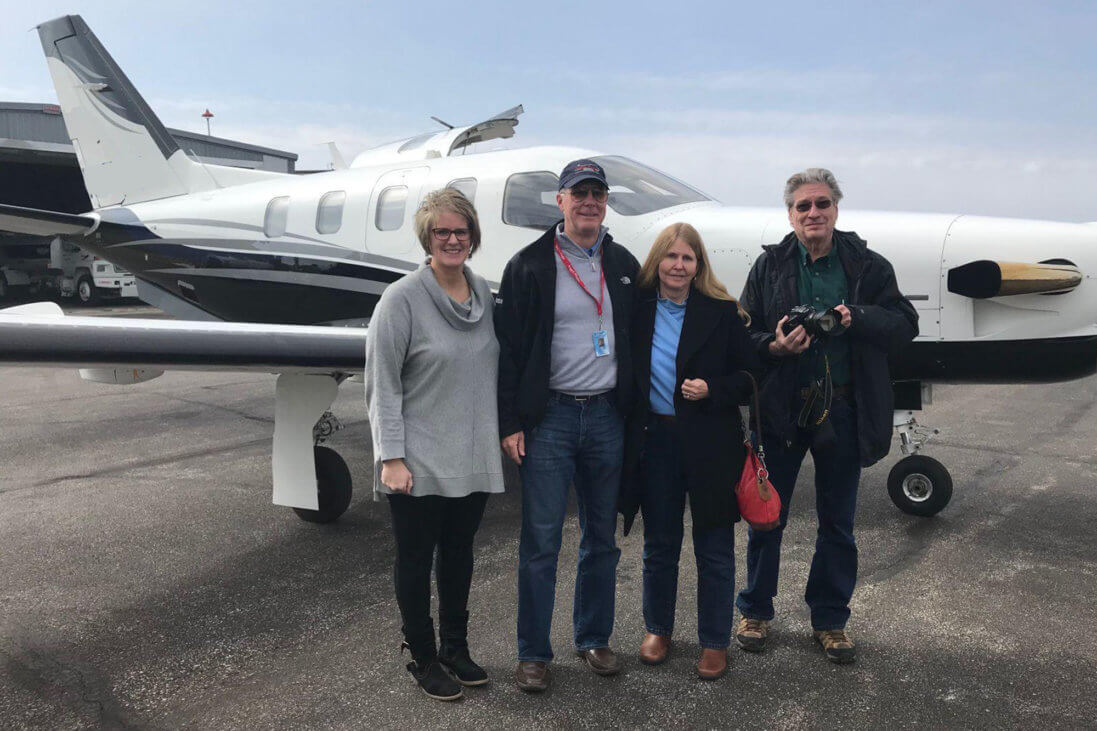
April 12, 2019
Read the full letter to the editor published in the Omaha World-Herald:
The national headlines may be moving away from the historic flooding Nebraskans have recently faced, but one of America’s best industries – “business aviation” – remains on the front line, lending a helping hand to those in need.
Business aviation is a term used to describe the manufacture and use of small airplanes for transportation. It generates jobs, connects communities, helps companies of all sizes succeed—and provides a lifeline when disasters strike, like the one in Nebraska.
Silverhawk Aviation, along with numerous other local volunteer pilots, was able to provide critical lift to deliver people from crisis areas, while moving medical specialists, supplies, and other resources into impact zones. We are just a small part of a loose coalition of nonprofit organizations, companies, and other groups committed to providing relief to Cornhusker families and rebuilding the state’s most damaged communities.
Consider the impact of these coordinated efforts: In Fremont, devastating rains cut off a community of 26,000 people from surrounding areas, turning the city into an island. There is no airline service from Fremont, and roads were impassibly flooded, so residents began inquiring about charter services to deliver them to medical appointments, jobs, and families.
Amidst the deluge of inquiries, our company had a single thought: Nebraskans stick together in times of crisis. We decided to fly as many people as we could from the impact zone. We were a small part in the overall picture of Nebraskans helping Nebraskans. Airports offered free fuel, local residents of Fremont donated food for the pilots and people struggling, and companies donated thousands of dollars in free supplies.
Silverhawk was able to utilize a pair of Beechcraft King Air 90 turboprop aircraft, a Cessna Citation, and a Cirrus to operate flights between Fremont Municipal Airport and the cities of Lincoln and Omaha, for relief-transport and related missions.
In the end, we transported more than 140 passengers free-of-charge before the flood-damaged roads gradually reopened. Of course, we couldn’t have done this alone: Silverhawk was joined by dozens of individual pilots, who together flew an estimated 1,000 people out of Fremont and into safety, and dozens more who offered any assistance they could provide
This moment illustrates the value of business aviation, not just in Nebraska, but nationwide. For example, after hurricanes ravaged Texas, Florida, and Puerto Rico in 2017, business aviation was a first responder, providing disaster relief before federal and state authorities could take over.
Of course, business aviation is at work for Nebraska—and America—every day. Nebraska is home to more than 75 public-use airports, many of which are used primarily for business purposes. These airports serve the local communities around them, and connect dozens of local companies to the global marketplace. In our state alone, business aviation helps support an economic output of more than $1.2 billion, and roughly 7,000 jobs.
In short, business aviation is a vital part of Nebraska’s economy and transportation system—in good times and bad. As Nebraska continues its recovery effort, we look forward to being a central part of that work.
Mike Gerdes is president of Silverhawk Aviation in Lincoln, NE.


 International Business Aviation Council Ltd.
International Business Aviation Council Ltd.